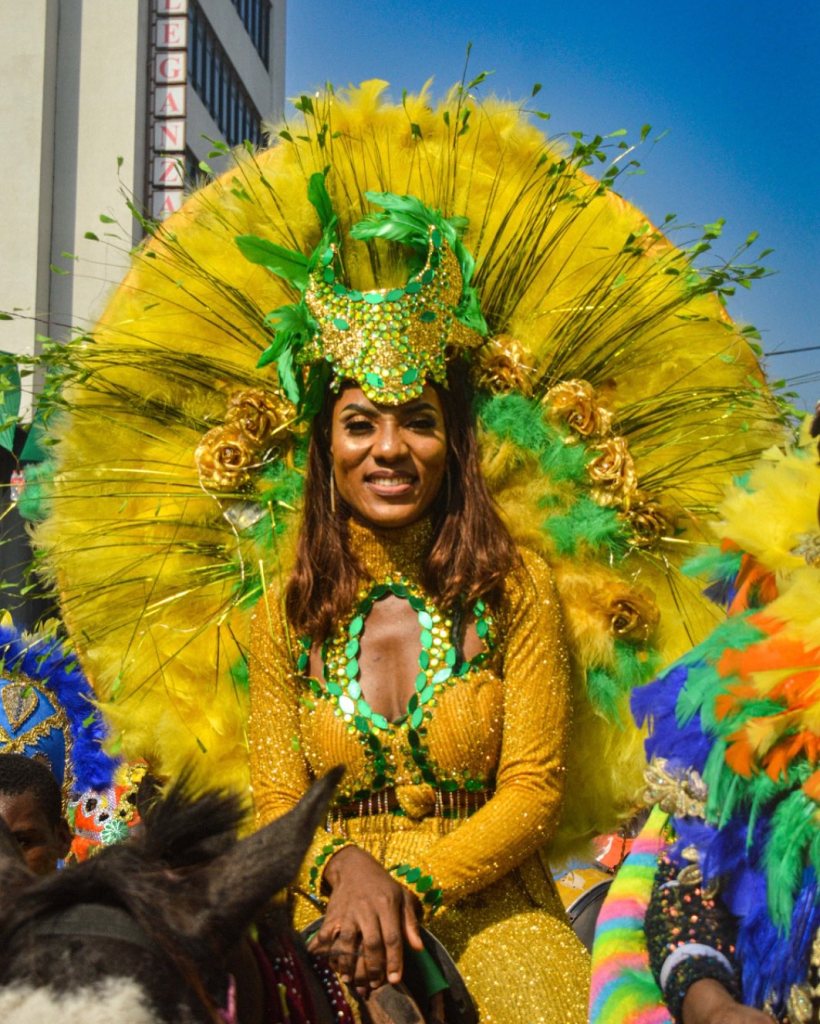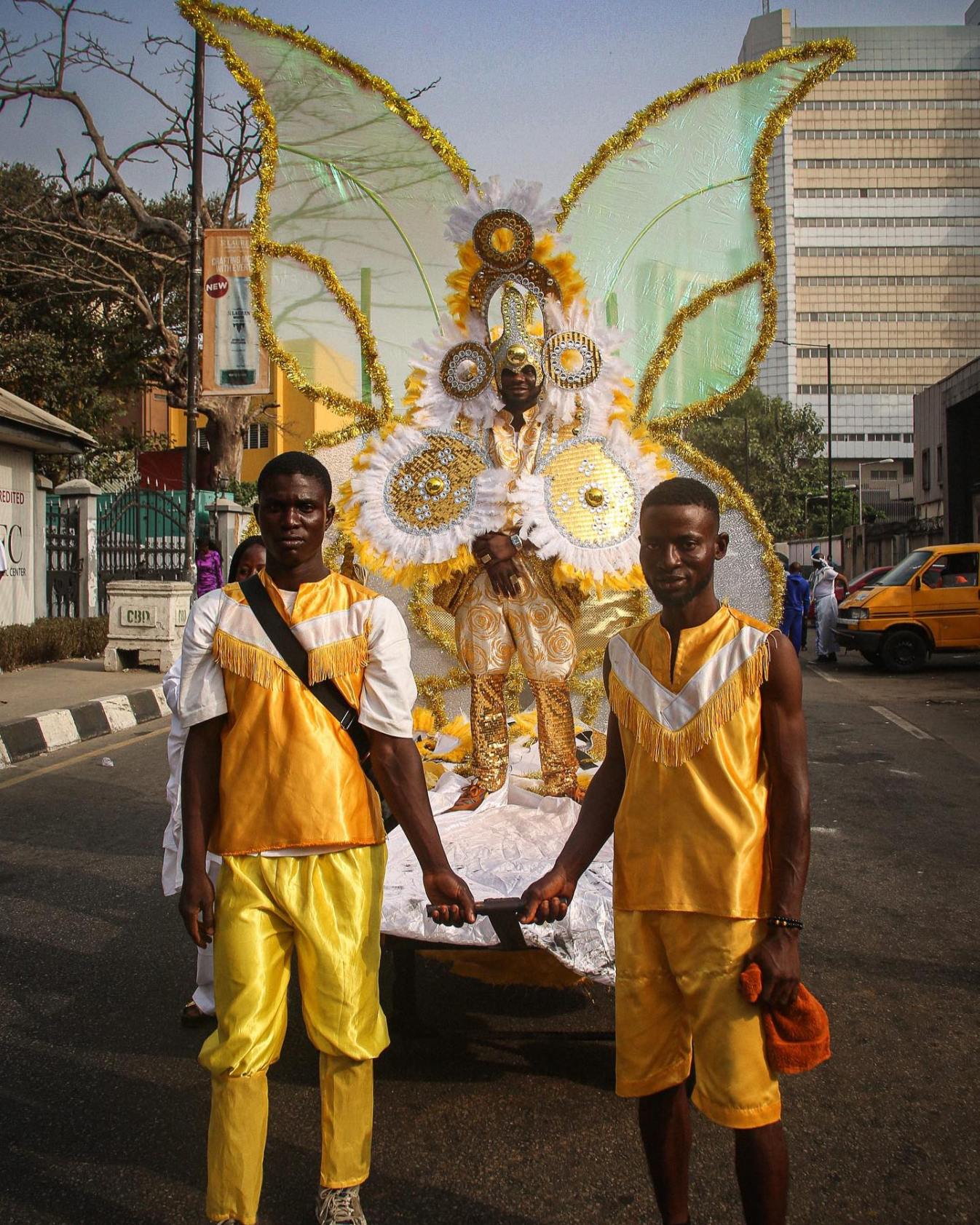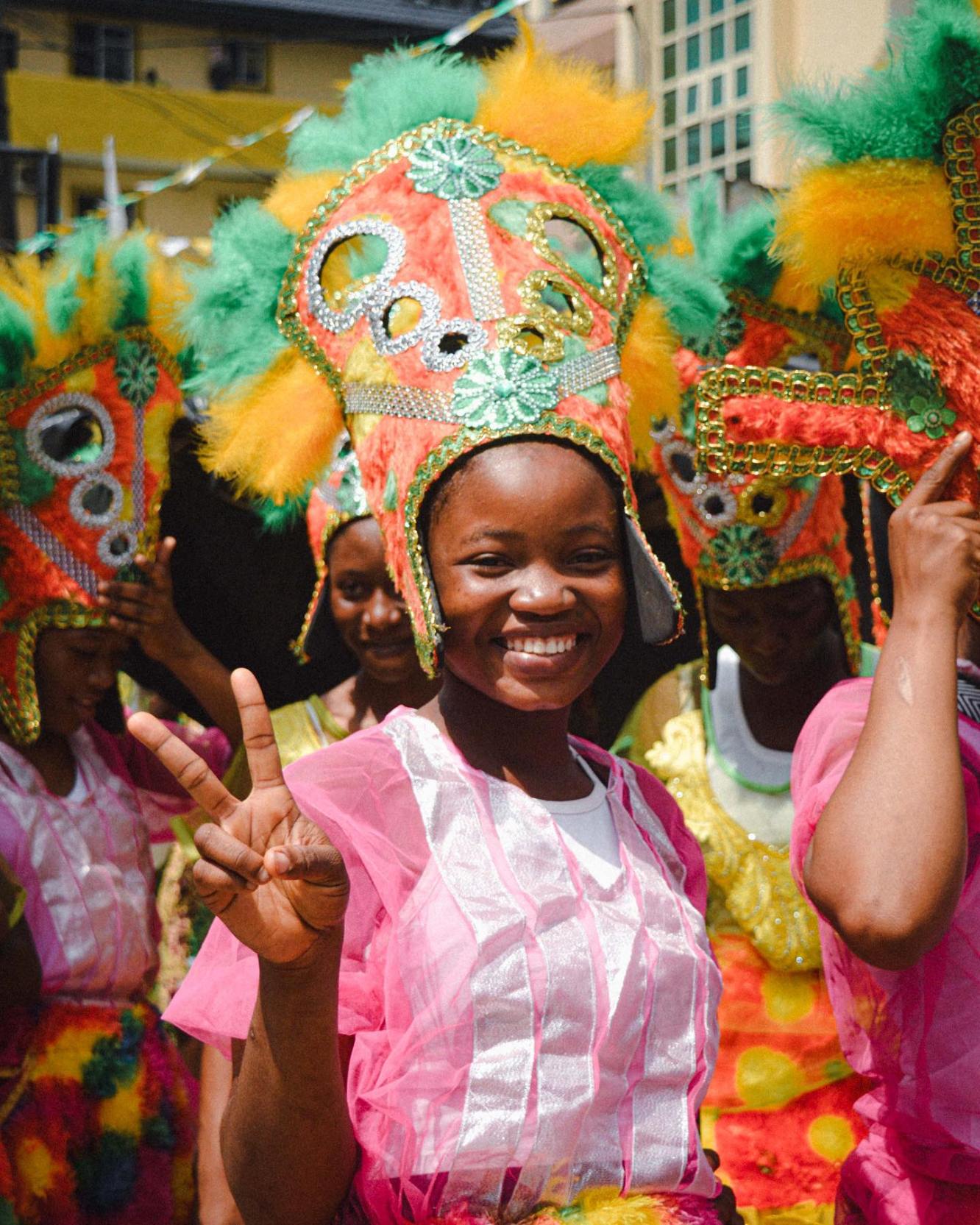
Picture this; a vibrant sea of colors moving through Broad Street, down the famed Catholic Mission Street (CMS), to Tafawa Balewa Square (TBS)—people dressed in flamboyant and brightly colored carnival attire, marching to the sounds of cheerful drums and celebratory trumpets. Teenagers wearing colorful masks entertain each other with whimsical dances as riders atop exuberantly decorated horses whoosh through the streets. The atmosphere pulses with palpable excitement and a sense of camaraderie. This is how a typical Lagos Fanti Carnival unfolds. The carnival is set to return this Easter Sunday—the 20th of April—and will once again celebrate Afro-Brazilian heritage through a vibrant procession through key streets on Lagos Island.

The festival’s roots stretch back to the 19th century when many formerly enslaved Africans—who had been taken to Brazil to mostly work on plantations—returned to West Africa after the abolition of slave trade. A significant number of them settled in Lagos Island, in areas like Campos Square, Brazilian Quarters, and Popo Aguda. These returnees, known by locals as the Agudas or Saros, brought with them elements of Brazilian culture. The architecture of areas like Brazilian Quarters and Popo Aguda echo the quaint maximalist sensibility of 19th-century Brazilian architecture. An unlikely blend of Catholicism and African traditional religion—which calls to mind the fluid spirituality of Brazilians—forms the spiritual upholstery of these communities. The carnival culture of Brazil is however perhaps the most enduring legacy these returnees introduced to Lagos.
The carnival tradition of the returnees evolved into the Lagos Fanti Carnival or Caretta Parade. The carnival inflects Brazilian carnival traditions with local Yoruba and Nigerian traditions, creating an event that feels authentic to Nigeria while celebrating the Brazilian heritage of the Agudas. This dual-naturedness also extends to the soul of the carnival. On one hand, it’s a celebration of community and freedom and shared experiences that ground and connect humans of all backgrounds. But it’s also a stark reminder of the horrors of slavery, the forceful estrangement of millions from their ancestral land—a tragedy that still haunts the communities from which countless people were kidnapped, sold, and loaded in ships to spend the rest of their days laboring on sugarcane fields.

During the trans-Atlantic slave trade era, Brazil imported more enslaved Africans than any other country in the world. For context, of the roughly 12 million enslaved Africans who were brought to the New World, roughly 5.5 million were brought to Brazil in the 15th and 16th centuries. While the numbers tell an already ominous tale, the reality is that the spiritual and social-cultural havoc that slavery wreaked on these communities is immeasurable. Even after the abolishment of slavery in the 19th century, only a tiny fraction of Africans—estimated at between 3000 and 10000—were able to return to Africa; most of whom settled in Lagos Island, Badagary, Sierra Leone, Port-Novo, and Ouidah. And so, a core narrative of the carnival is the ability for joy and beauty to be born from strife. It’s not just a colorful procession but an ode to the trenchant spirit of the returnees.
In the past few years, the festival has increased in acclaim and scope, and this year it appears set to reach critical mass. This edition of the carnival is supported by the Lagos State Ministry of Tourism, Arts, and Culture, in partnership with Robert Taylor Media and the Brazilian Descendants Association. The partnership with the Lagos State Government for this edition will contribute to raising the carnival’s cultural capital, Mr Oluremi Da-Costa, the general secretary of the Brazilian Descendants Association, told me. “It’s going to be visibly different.”

While this year’s edition will keep with the carnival’s celebratory atmosphere, it will also look beyond the carnival, into the history out of which the carnival arose. “I want people to hear stories that go beyond carnival,” Kelechi Anabaraonye, a historian, photographer, and the curator of this year’s carnival told me. “The weddings at all the historic churches in Lagos Island, burials, life and times of some individuals, the residences of these folks who walked the surface of Lagos over a century before us, and it’s also the elegance of their resting places.” Over the years, the Lagos Fanti Carnival has become one of the most consequential events in West Africa, and this year, it hopes to reach even greater heights.
